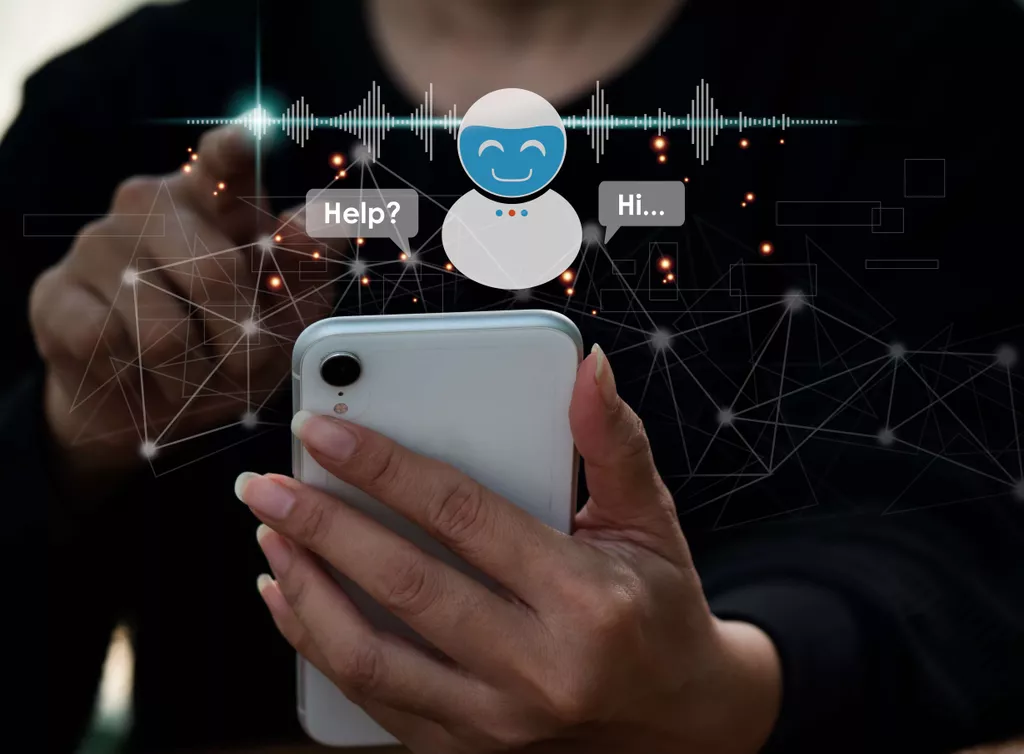
Liji practiced as a full-time consultant in obstetrics/gynecology in a private hospital for a few years following her graduation. She has counseled hundreds of patients facing issues from pregnancy-related problems and infertility, and has been in charge of over 2,000 deliveries, striving always to achieve a normal delivery rather than operative. As you think through the approaches outlined here, make sure you’re looking at this more as a marathon and not a sprint. The implementation of an AI Chatbot may be a technical approach, but it is much more of a cultural transformation than a technological one. Real-time sharing and downloading of medication prescriptions and lab test reports by AI Chatbot for Healthcare on WhatsApp, Facebook, Instagram, Telegram, and more.
- SmartBot360 integrates with your workflow and guides each patient according to triage guidelines.
- Patients can use speech recognition, video augmented reality, and medical devices to connect with hospitals from other healthcare providers and integrated health institutions.
- Even with promising results, there are still potential areas for improvement.
- They answer questions outside of the scope of the medical field such as financial, legal, or insurance information.
- As a result of this training, differently intelligent conversational AI chatbots in healthcare may comprehend user questions and respond depending on predefined labels in the training data.
- However, healthcare providers may not always be available to attend to every need around the clock.
Still, many studies and user experiences have shown that LLMs can hallucinate sources that do not exist and format them to look like reliable citations. Determining whether those cited sources are legitimate would put a large burden on the user. This would be difficult to scale with the amount of AI-generated content, however. But the well-read LLM chatbots could take doctor-AI collaboration—and even diagnosis—to a new level. In a study posted on the preprint server medRxiv in February that has not yet been peer-reviewed, epidemiologist Andrew Beam of Harvard University and his colleagues wrote 48 prompts phrased as descriptions of patients’ symptoms. When they fed these to Open AI’s GPT-3—the version of the algorithm that powered ChatGPT at the time—the LLM’s top three potential diagnoses for each case included the correct one 88 percent of the time.
Use Cases and Examples of Chatbots in Healthcare
By having an intelligent chatbot to answer these queries, healthcare providers can focus on more complex issues. They can provide faster and more accurate answers to common questions, automate simple tasks, and proactively offer relevant advice to patients. This increased efficiency in patient interactions will lead to higher customer satisfaction ratings, an essential metric for healthcare organizations. For healthcare institutions when it comes to increasing enrollment for different types of programs, raising awareness, medical chatbots are the best option.

Our team has developed an easy-to-use application with a wide range of functions, a web-based administrative panel, and a health and wellness application for Android and iOS platforms. That app allows users undergoing prostate cancer treatment to track and optimize their physical and mental health by storing and managing their medical records in the so-called health passport. Aside from connecting to patient management systems, the chatbot requires access to a database of responses, which it can pull and provide to patients. Companies limit their potential if they invest in an AI chatbot capable of drawing data from only a few apps. For most healthcare providers, scheduling questions account for the lion’s share of incoming patient inquiries.
Step 2. Choose the right platform and technology:
Second, because the AI chatbot intervention domain is relatively new, there are very few measures on feasibility, usability, acceptability, and engagement with tested reliability and validity. Therefore, the researchers in the selected studies had to develop their own measures for assessing outcomes. This led to inconsistency in the measures and their operational definitions across the studies.
Future studies should consider refining the search strategy to identify other potentially relevant sources that may have been overlooked and assign multiple reviews to limit individual bias. Finally, the issue of fairness arises with algorithm bias when data used to train and test chatbots do not accurately reflect the people they represent [101]. As the AI field lacks diversity, bias at the level of the algorithm and modeling choices may be overlooked by developers [102]. In a study using 2 cases, differences in prediction accuracy were shown concerning gender and insurance type for intensive care unit mortality and psychiatric readmissions [103]. On a larger scale, this may exacerbate barriers to health care for minorities or underprivileged individuals, leading to worse health outcomes. Identifying the source of algorithm bias is crucial for addressing health care disparities between various demographic groups and improving data collection.
The Future of Chatbot Technology in Healthcare
A chatbot for healthcare provides users with immediate answers to frequently asked queries and lowers the number of tickets. Bots are ready 24 hours a day to interact with clients and offer quicker support. A medical chatbot recognizes and comprehends the patient’s questions and offers personalized answers. A medical chatbot recognizes and comprehends the patient’s questions and offers personalized answers.
82% of healthcare consumers (PDF, 1.2 MB) who sought pricing information said costs influenced their healthcare decision-making process. With a superior two-level matching engine, most, if not all customer inquiries will be answered by the bot without a person having to step in. However, if the question isn’t able to be answered by the bot you’ll also get an option to connect the customer to a live agent.
The internet of things in healthcare: an overview and its future
With Watson Assistant, patients arrive at that human interaction with the relevant patient data necessary to facilitate rapid resolution. That means patients get what they need faster and more effectively, without the inefficiency of long wait times and incorrect call routing. Customers looking for answers to their immediate questions will sometimes quickly move on to another alternative if immediate support isn’t available. With Smartbot360, clients will feel as though they’re talking to a live agent and will feel acknowledged and supported. If your business gets repetitive questions like “What services do you offer”, “Is HSA/FSA accepted? ” or more that can usually be answered with a sentence, you would save a lot of work time that can be spent elsewhere with a chatbot.

Chatbot answers were more likely to have missing content than human answers were, but the answers were slightly less likely to harm users’ physical or mental health. As researchers and clinicians begin to explore the potential use of large language model artificial intelligence in healthcare, applying principals of clinical research will be key. As most readers will know, clinical research is work with human participants that is intended primarily to develop metadialog.com generalizable knowledge about health, disease, or its treatment. Determining whether and how artificial intelligence chatbots can safely and effectively participate in clinical care would prima facie appear to fit perfectly within this category of clinical research. In addition to informed consent, clinical research is subject to independent review by knowledgeable individuals not affiliated with the research effort — usually an institutional review board.
Personalized care
Kommunicate’s telemedicine AI Chatbot uses state-of-the-art Natural Language Understanding (NLU) to extract entities like location, time, disorder, drug or findings. Using chatbots for healthcare helps patients to contact the doctor for major issues. A healthcare chatbot can serve as an all-in-one solution for answering all of a patient’s general questions in a matter of seconds.
- Patients can book appointments directly from the chatbot, which can be programmed to assign a doctor, send an email to the doctor with patient information, and create a slot in both the patient’s and the doctor’s calendar.
- With 24/7 accessibility, patients have instant access to medical assistance whenever they need it.
- Healthcare providers are relying on conversational artificial intelligence (AI) to serve patients 24/7 which is a game-changer for the industry.
- It has formed a necessity for advanced digital tools to handle requests, streamline processes and reduce staff workload.
- Our in-house team of trained and experienced developers customizes solutions for you as per your business requirements.
- 43% of people google their symptoms before they visit a real doctor and misdiagnose themselves, thinking they have a much more serious illness than they actually have.
How AI can help health care?
Examples of AI in Medicine and Healthcare
AI can improve healthcare by streamlining diagnoses and improve clinical outcomes. A critical part AI's power in the healthcare industry is its ability to analyze a vast amount of data sets. Digital health startup Thymia is a prime example.
